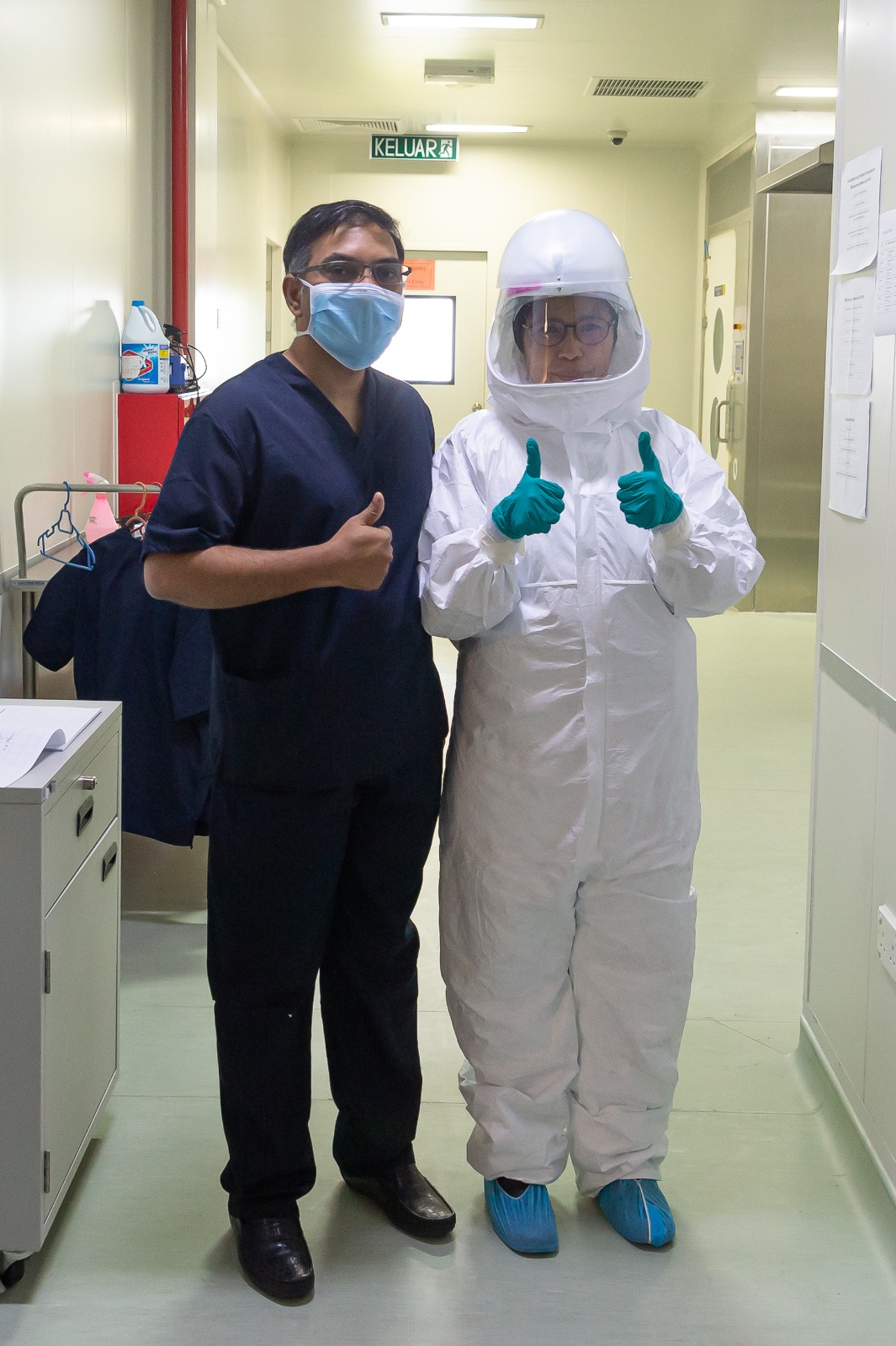Article by:
Prof. Dr. Vijay Kumar & Assoc. Prof. Dr. Zarina Amin
Biotechnology Research Institute,
Universiti Malaysia Sabah
This email address is being protected from spambots. You need JavaScript enabled to view it.
Borneo is a land of breathtaking biodiversity, where lush rainforests, winding rivers, and diverse wildlife have coexisted with human communities for centuries. However, as Sabah continues to develop, we are seeing increasing interactions between humans, livestock and wildlife, raising the risk of zoonotic diseases, where pathogens jump from animals to people.
The COVID-19 pandemic made biosurveillance a global priority, but as we move forward, many of those lessons are being forgotten. In regions like Sabah, where human-wildlife interactions are frequent, biosurveillance needs to remain a priority. The spread of infectious diseases doesn’t just threaten public health as it can impact tourism, agriculture, and even conservation efforts.
The Growing Threat of Zoonotic Diseases in Borneo
One of the most well-documented zoonotic diseases in Borneo is Plasmodium knowlesi malaria, transmitted by mosquitoes from macaques. With Sabah’s rural communities expanding into forested areas, the risk of exposure has increased. Alarmingly, this zoonotic malaria now accounts for the majority of malaria cases in the state.
Beyond malaria, bats in Sabah have been found carrying several previously unknown coronaviruses, similar to the ones responsible for past outbreaks like SARS and COVID-19. These discoveries highlight the risks faced by tourists and locals visiting popular bat-inhabited caves.
Meanwhile, Sabah’s poultry farms have struggled with outbreaks of highly pathogenic avian influenza (H5N1) in 2018. The virus spread rapidly, resulting in the culling of thousands of birds. While no human cases were reported, viral antibodies were detected in some individuals, suggesting previous zoonotic transmission.
In neighbouring Sarawak, rabies remains a major concern, accounting for nearly all cases in Malaysia. With Sabah sharing borders with rabies-endemic regions, ongoing vaccination and surveillance efforts are critical to prevent outbreaks in the state.
Emerging Animal Health Challenges
Diseases affecting livestock and wildlife are also a growing concern. Local strains of Newcastle Disease Virus and Infectious Bronchitis Virus have impacted Sabah’s poultry industry, rendering existing vaccines not as effective as expected. Infected chickens may not pose a direct zoonotic risk, but their decline threatens food security and the livelihoods of farmers.
Marine wildlife isn’t spared either. On Mabul Island and surrounding waters, a rising number of sea turtles are suffering from fibropapillomatosis, a disease caused by a herpesvirus. This condition leads to debilitating tumors, often requiring human intervention for survival. Surveillance is crucial, even in Sabah’s pristine waters, to protect these endangered species.
Additionally, African Swine Fever (ASF) has devastated Sabah’s wild and farmed pig populations. ASF doesn’t infect humans, but its rapid spread among Sus barbatus (bearded pigs) poses a serious ecological and economic challenge. The loss of these animals could disrupt ecosystems and traditional hunting practices in indigenous communities.
Soil, Water, and Rodent-Borne Diseases
Diseases like melioidosis, caused by Burkholderia pseudomallei, thrive in Sabah’s tropical soil and have infected both humans and wildlife, including orangutans and macaques. Another persistent threat is leptospirosis, a bacterial infection spread through contaminated water, often carried by rats. Similarly, Bartonella bacteria, which are linked to rodents, are surprisingly prevalent in urban centers of Borneo. These hidden threats highlight the need for ongoing environmental monitoring.
Human Actions and Disease Spillover
One of the biggest challenges in disease prevention is human activity. Poaching and the illegal wildlife trade continue despite conservation efforts. Wildlife, including pangolins, is still being trafficked, often under the radar at local markets. While no zoonotic viruses have been detected in Sabah’s pangolins so far, the risk remains high. Stricter enforcement is needed to curb these activities.
Looking ahead, it is anticipated that large-scale development projects, such as Indonesia’s new capital Nusantara in East Kalimantan, could significantly disrupt wildlife habitat in Borneo’s ecosystems. Increased deforestation, agricultural expansion, and hydropower projects will likely intensify human-wildlife conflicts and heighten disease spillover risks. These large-scale developments are expected to intensify human-wildlife conflicts, habitat loss and disease spillover.
The Way Forward: Strengthening One Health Biosurveillance
Biosurveillance in Sabah involves government agencies, academic institutions, and conservation organizations, but it faces hurdles like limited funding, outdated equipment, and lack of coordination. Strengthening One Health, a collaborative approach integrating human, animal, and environmental health, is essential to addressing these challenges.
We propose five key strategies:
- Genomic Surveillance & AI Analytics: Leveraging next-generation sequencing, environmental DNA (eDNA) monitoring, and artificial intelligence (AI) to detect emerging pathogens.
- Community Engagement & Education: Educating rural and indigenous communities about zoonotic risks and prevention strategies.
- Stronger Enforcement Against Poaching: Strengthening partnerships between government agencies and NGOs to curb wildlife trafficking.
- Sustainable Land-Use Policies: Promoting conservation-driven development to minimize human-wildlife conflict.
- Policy Integration & Increased Funding: Securing more resources for biosurveillance and integrating One Health into national policies.
Conclusion
Sabah’s rich biodiversity is a double-edged sword, it is a global treasure but also a hotspot for emerging infectious diseases. As human activity continues to reshape landscapes and ecosystems, proactive biosurveillance and a stronger One Health approach are needed.
We urge the formation of an interdisciplinary task force, bringing together public health experts, conservationists, virologists, AI specialists, and policymakers. By combining expertise and leveraging new technologies, Sabah can safeguard both its people and its incredible biodiversity for future generations.


